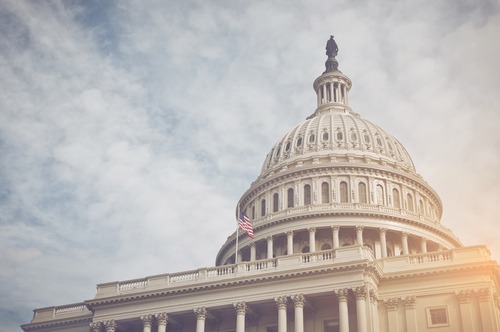
The U.S. Senate passed a $550 billion spending bill on Tuesday, setting the stage for a historic investment into the country’s infrastructure.
The bill would inject needed federal funds into America’s transportation, broadband and utility systems while beginning the deliberations on a larger $3.5 trillion budget proposal that includes several health care priorities.
The 69-30 vote to approve the infrastructure plan comes after months of negotiations between a bipartisan group of Senators and the White House. More steps face the bill before it is turned into law.
“Throughout my career, I have consistently advocated for increased federal investment in America’s infrastructure. By investing in our infrastructure, we can create good-paying jobs, support American manufacturing, stop sending jobs to China and strengthen the economy,” said U.S. Rep. Peter DeFazio (D-OR), chair of the Committee on Transportation and Infrastructure. “With today’s passage of a bipartisan infrastructure bill in the Senate, Congress is as close as it has been in years to finally delivering on a big, bold infrastructure package.”
The bill would invest $110 billion into roads and bridges; $66 billion in passenger and freight rail; $39 billion to modernize public transit; and $193 billion on clean energy transmission, broadband, and clean water systems.
Several transportation industry groups commented on the bill’s passage.
Airlines for America noted the progress made through bipartisan compromise.
“We applaud the Senate for working in a bipartisan spirit to advance an infrastructure package rooted in compromise. Their support of our nation’s infrastructure demonstrates a deep understanding of the critical role transportation plays in the economy, commerce, and our daily lives – whether it’s getting employees to their jobs, connecting people with loved ones or delivering products to consumers,” A4A said in a statement. “We are hopeful the government will work in a similar way to successfully enact sustainability initiatives including investments that will help the U.S. airline industry achieve our aggressive and ambitious goal to achieve net-zero carbon emissions by 2050.”
Trucking associations heralded what it said the bill represented – the first action on infrastructure in 30 years.
“American Trucking Associations President and CEO Chris Spear issued this statement on the Senate’s passage of the bipartisan infrastructure bill:
“For nearly three decades, our nation and industry have been held hostage by empty promises—all talk, no action. Today, the Senate put America ahead of itself,” American Trucking Association’s President and CEO Chris Spear said in a statement. “Passage of this bipartisan infrastructure bill is a groundbreaking step toward revitalizing America’s decaying roads and bridges, supporting our supply chain and economy with the foundation they need to grow, compete globally, and lead the world. The bill also contains significant measures to grow and strengthen trucking’s essential workforce.”
The Governors’ Highway Safety Association (GHSA) applauded the funding that would go to states.
“In a time of increased roadway fatalities, the U.S. Senate has assembled a legislative package that will make a historical investment in highway safety,” said Jonathan Adkins, Executive Director of GHSA. “The legislation also promotes new technology to prevent impaired driving, invests in efforts to collect better crash and traffic stop data, protect pedestrians, and make reforms to federal highway safety grant programs – all steps that will help save lives on our roads.”
The bill now moves to the House, but House leaders have said they will wait to work on passing the bill until a larger $3.5 trillion budget reconciliation package is approved in the Senate.